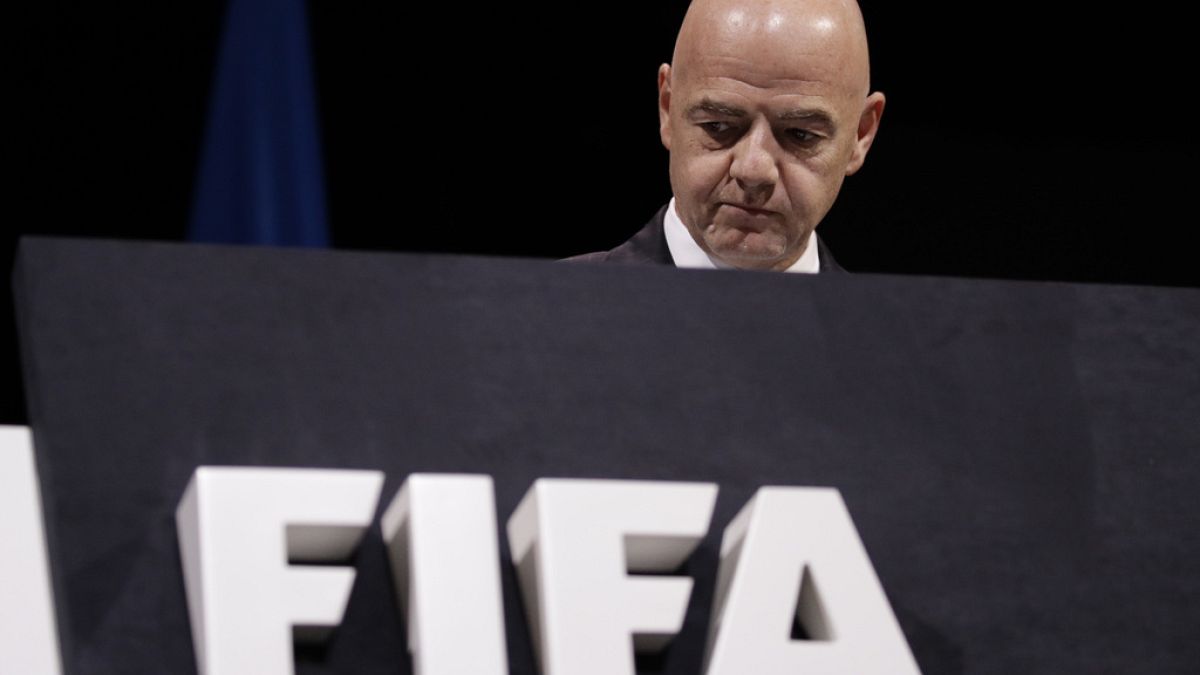In a move that has stirred controversy within the world of football, FIFA has announced plans to expand the Club World Cup from seven teams to 32 in 2025. This decision has been met with legal challenges from player unions, who are concerned about the physical and mental toll that such a demanding competition could have on athletes. The European player association, FIFPRO, has taken the matter to court, citing an already overcrowded football calendar as a major concern. Despite FIFA’s assurances that the tournament will take place during the offseason for many leagues, player unions argue that this still leaves players with little time for rest and recovery.
The increased number of teams in the Club World Cup has raised alarm bells within the football community, with many expressing worries about the well-being of players participating in the tournament. FIFPRO Europe has been vocal in its opposition to the 32-team plan, citing concerns about the impact on player health and personal lives. The association has criticized FIFA for pushing forward with the expansion without taking player welfare into consideration. With major competitions such as the Euro 2024 Championship and Copa America already scheduled for the years leading up to the 2025 Club World Cup, players are facing an intense period of competition without much time for rest in between.
FIFA has defended its decision to expand the Club World Cup, pointing to the timing of the tournament as a key factor that will allow players to get the necessary rest. The governing body has argued that by holding the competition during the offseason for many major leagues, players will have sufficient time to recover and prepare for the tournament. However, player unions remain unconvinced and have taken their concerns to court in an effort to ensure that the rights and well-being of players are fully respected. FIFPRO Europe President David Terrier has called the Club World Cup expansion the “straw that broke the camel’s back,” highlighting the ongoing issue of an overloaded football calendar.
The legal battle between player unions and FIFA over the expansion of the Club World Cup underscores the ongoing tension between the governing body of football and the players who compete in its tournaments. The clash over the 32-team plan is emblematic of the broader struggle for player rights and welfare in a sport that is often criticized for its grueling schedules and demands on athletes. As the legal proceedings unfold, the outcome of the case will have far-reaching implications for the future of football and the well-being of its players. Ultimately, the dispute over the Club World Cup expansion serves as a reminder of the need to prioritize the health and safety of athletes in a sport that often puts commercial interests above all else.
The legal challenge to FIFA’s decision to expand the Club World Cup is a significant moment in the ongoing debate over player welfare in football. Player unions have long argued that the current football calendar is unsustainable and places too much strain on athletes, leading to physical and mental health issues. By taking their concerns to court, player associations are seeking to hold FIFA accountable for its decisions and ensure that the rights of players are protected. The outcome of the legal battle will not only impact the Club World Cup but could also set a precedent for how player welfare is addressed in future football competitions. In the face of growing pressure from player unions, FIFA will be forced to confront the need for a more balanced and sustainable approach to scheduling tournaments.
The conflict surrounding the expansion of the Club World Cup highlights the complex relationship between football’s governing bodies and the players who make the sport what it is. While FIFA is tasked with organizing tournaments and promoting the growth of the game, it must also prioritize the well-being of the athletes who compete in its events. The legal challenge from player unions is a reminder that players are not just pawns in a larger game but individuals with rights and needs that must be respected. As the debate over the Club World Cup expansion continues to unfold, it will be crucial for all parties involved to work towards a resolution that benefits the sport as a whole while also safeguarding the health and welfare of its players.










